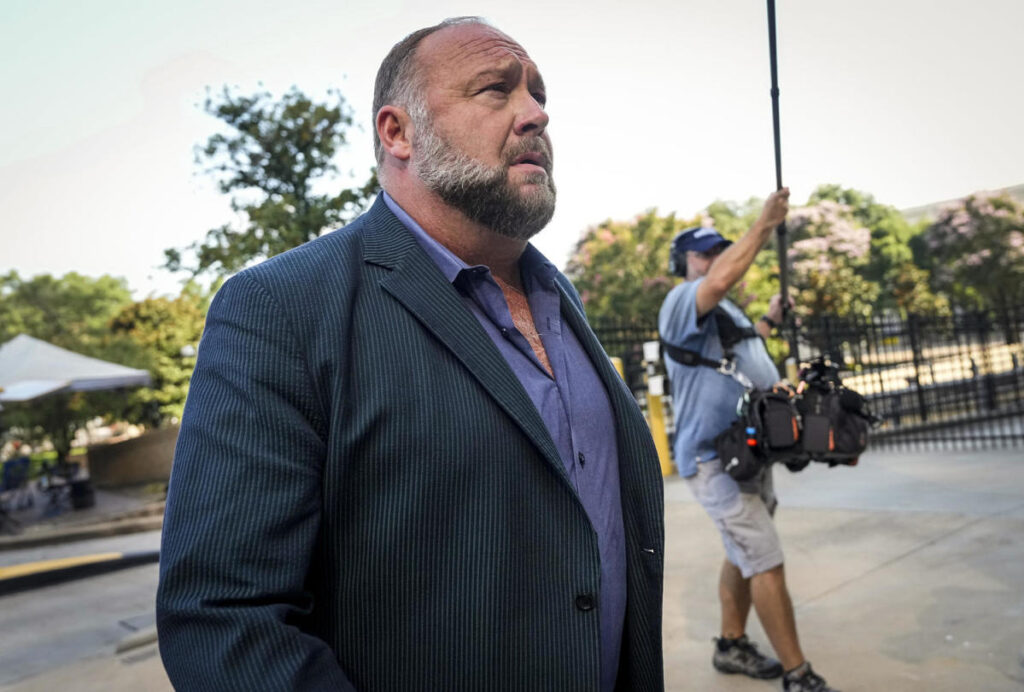A U.S. Bankruptcy Judge Christopher Lopez recently ruled against The Onion’s parent company, Global Tetrahedron, in its attempt to acquire Alex Jones’ far-right media empire, including the controversial website Infowars. The judge found the auction process to be flawed and unfair, determining that Global Tetrahedron’s bid of $1.75 million, which included a non-cash pledge related to victims of the Sandy Hook shooting, was not the best offer. Judge Lopez emphasized the necessity of maximizing the value for creditors, stating, “I think you’ve got to go out and try to get every dollar,” indicating that he believed the auction process had failed to achieve this goal. He left the next steps in the hands of the court-appointed trustee, Christopher Murray, who had presided over the auction.
The ruling halted Global Tetrahedron’s ambitions to transform Infowars from a platform saturated with anti-government conspiracies into one that embodies satirical humor. Alex Jones, in response to the decision, expressed confidence and satisfaction, claiming victory and referring to the previous sale process as fraudulent. Despite disappointment from The Onion’s CEO Ben Collins, who expressed a desire to maintain the mission of creating a “better, funnier internet,” he acknowledged the judge’s recognition of their good faith during the process, even as they sought clarity for future bids.
Alongside The Onion, families of Sandy Hook victims had partnered to bid for Jones’ assets, aiming to hold him accountable for the significant damages from a defamation case, in which they won over $1.2 billion. They intended to leverage part of their bid to include Everytown for Gun Safety as an exclusive advertiser on Infowars. A lawyer for the families expressed resolve in seeking accountability from Jones, remaining hopeful that legal proceedings would eventually result in compensation for their suffering. The initial auction result had shocked observers, given the notorious reputations of both The Onion and Jones, but was contingent on Judge Lopez’s approval.
The auction showcased two bids: Global Tetrahedron’s combined bid valued at approximately $7 million and a rival all-cash offer of $3.5 million from First United American Cos., linked to Jones’ own businesses, which Judge Lopez deemed insufficient as well. A lawyer representing First United American criticized the legitimacy of the non-cash elements of Global Tetrahedron’s offer, asserting that “cash is cash” should have prioritized their higher cash bid of $3.5 million. Lopez noted that a more transparent process could have opened up further financial possibilities for the creditors involved.
Jones’ assets are under scrutiny as he owes over $1.2 billion stemming from his defamatory claims regarding the Sandy Hook massacre, creating significant repercussions for his media operation, Free Speech Systems. During the court sessions, trustee Christopher Murray defended his auction approach as transparent and aimed solely at maximizing returns for creditors. He maintained that his process excluded no one, although the judge raised concerns about certain aspects of the finalization of bids that led to his ruling against approving Global Tetrahedron’s bid.
The implications of this ruling are significant, as they not only prolong the uncertainty surrounding the fate of Infowars but also reinforce the ongoing battle for accountability for the harm inflicted on the Sandy Hook victims by Alex Jones’ statements. This case illustrates a complex intersection of media, accountability, and bankruptcy law, showcasing the challenges posed when parties with deeply conflicting interests vie for control over contentious platforms. As the process continues, stakeholders remain vigilant, hoping to reclaim some semblance of justice and closure from a tumultuous past.

